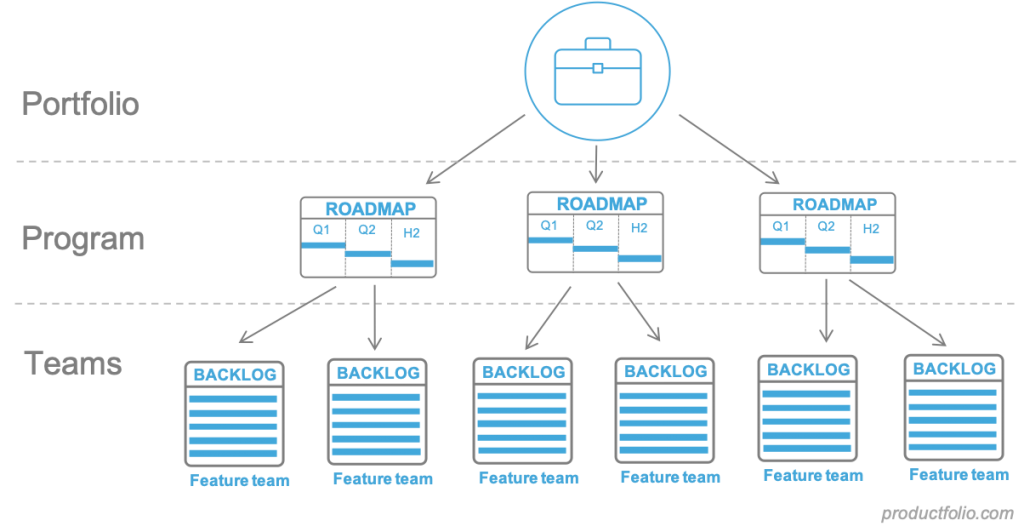What Makes a Great Product Team?
Behind every winning product is a great team. What makes a good product team? What are some of those attributes that are necessary to ensure success? We’ll cover these questions with this article, but first it is important to define what the product team is, and where it fits within the organization. Let’s dive in!

The Product Team
A product team is one that sees to strategy implementation and feature definition for a product or a line of products. It provides a roadmap showing how a product will help to achieve the goals of a company. The roles of Product are both strategic and calculated. They can include activities such as market research, forecasting, marketing, and profit and loss analysis. The team works with several others to ensure the success of a product.
Developing a great offering often means taking into consideration different perspectives. What one or two persons think might not be sufficient for delivering a winning solution. Therefore, the team usually comprises members from diverse teams so they can add in what they think about a proposed product.
Types of Product Teams
One might think Product would mean the same thing in different organizations. This, however, is not the reality. You may find that the definition of the team in one company might not tally with that in another. Multiple team types are especially common in the tech industry.
In some tech companies, product teams are more or less delivery teams. Their main focus is to just deliver the output and so may have little or nothing to say about what to produce. There are also product teams that may be called feature teams. These are only a little different from delivery teams. They mainly ensure that a solution is usable and feasible. Feature teams mainly, or exclusively, comprise designers and engineers.
Real product teams are cross-functional and strategically empowered. They include people from, or sometimes leaders of, other teams such as design, engineering, marketing, and sales. Often headed by product managers, these teams are responsible not only for ensuring the usability and feasibility of products but also ensuring their value and viability. Essentially, companies having such teams leave it to them to deliver solutions that work for both the customer and the company.
Only a minority of teams are product teams in the optimal sense. What many companies have tends toward feature teams, for which stakeholders or executives determine what to develop.
Some Attributes of a Winning Team
There are certain qualities that product teams must have to consistently deliver great products. We highlight a number of them below.
Shared vision
The first requirement for ensuring that team members work well together is a common vision. There should be a shared belief in the goals and mission of the company. A clear, shared understanding of the company goals will help when members are working in their main areas of focus. It removes confusion, promotes synergy, and improves efficiency.
Highly-skilled members
Product teams must have the right mix of talents. This is not necessarily about bringing in fresh faces with better skills. It could simply be about making the people you already have more efficient.
Product managers will find it helpful to not let a team member feel less or more useful than others. Efforts should regularly be made to help those performing below par to improve. Periodic discussions will prove useful for correcting weaknesses and other issues to boost performance.
Customer focus
Everything that great product teams do is usually driven by interactions with end-users. They are concerned more about customers getting value from products. Product teams have different people to satisfy, no doubt, but the end-users come first. It is only when offerings satisfy customers that their existence is justified. What teams learn from interactions with users forms the root of the strategic vision for any product.
Feedback-friendliness
A team needs to be open to feedback. This will come from multiple sources, including customers, executives, and teams. It can serve a great purpose in helping the teamwork better. Successful teams do not see feedback as an attempt to criticize their work. Rather, they welcome and acknowledge ideas and suggestions, even if they are not new or innovative. This improves their chances of getting useful information from others.
Empowerment
True product teams are empowered. Its members are solely responsible for ensuring that a product to be developed is valuable, viable, usable, and feasible. The product manager enjoys some independence in coming up with initiatives and taking risks without having to rely completely on the executives. He merely uses the opinions of team members in his decisions. This helps greatly to deal with decision bottlenecks.
Recognition
Another attribute of great product teams is that they are not reluctant to recognize individuals deserving of praise for their work or extra effort put in. This is actually a success factor in that it encourages top performers to do more.
Transparency
A good team is also transparent. It regularly lets other relevant people within the company know what it is doing. The team lets the organization know the progress being made in its work. It carries out market research to find out and then communicate what to release. A team develops a roadmap showing what it intends doing to achieve product and business goals.


